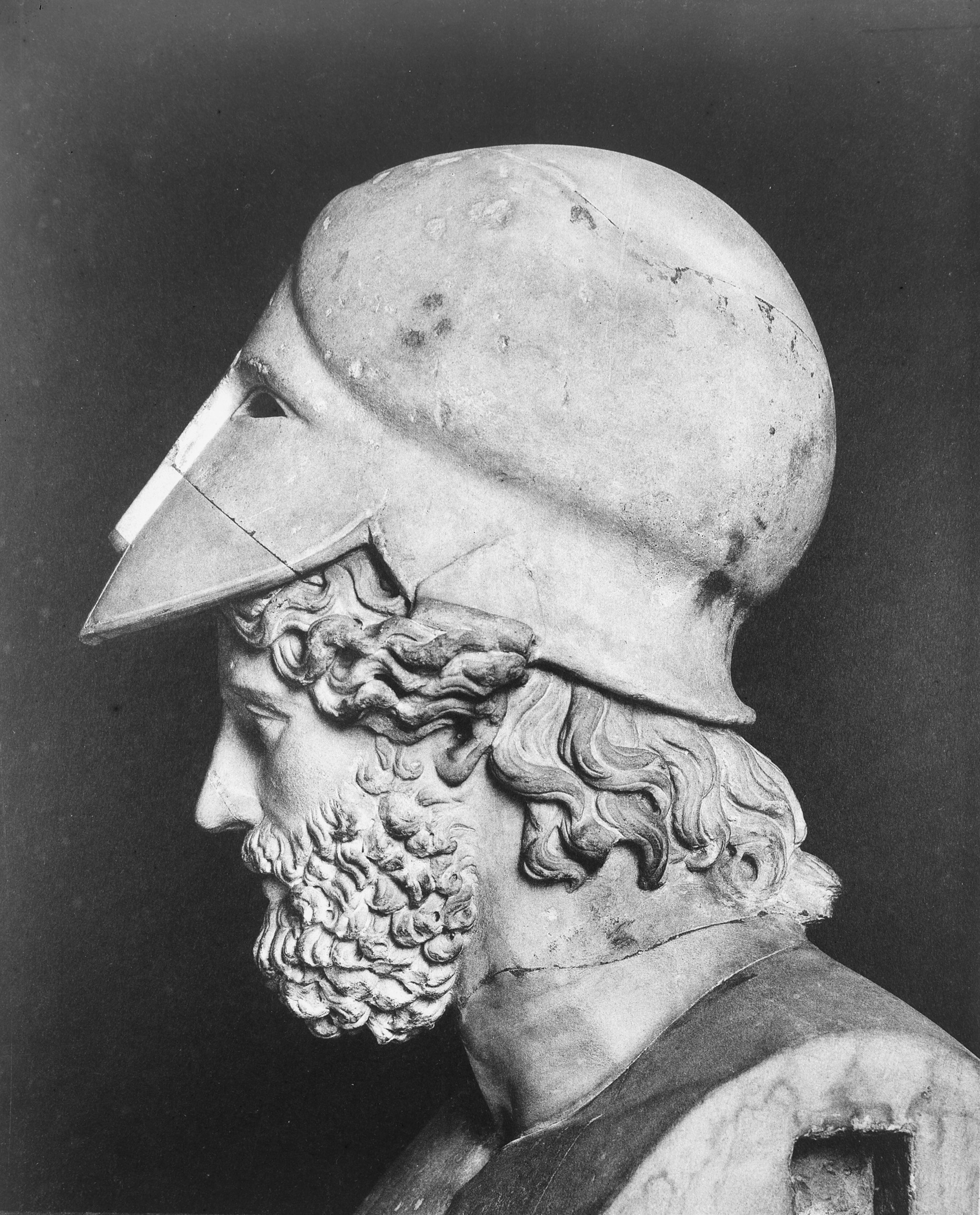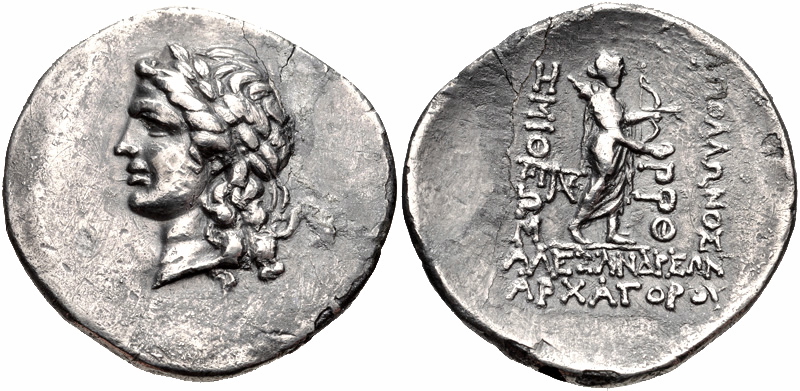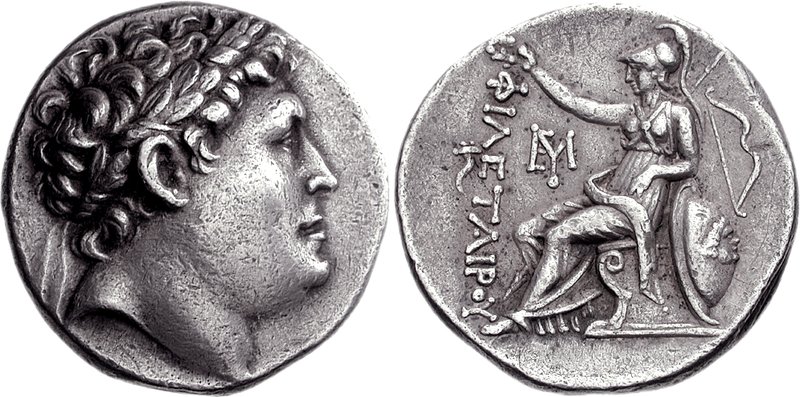|
Skepsis
Scepsis or Skepsis ( grc, Σκῆψις or Σκέψις) was an ancient settlement in the Troad, Asia Minor that is at the present site of the village of Kurşunlutepe, near the town of Bayramiç in Turkey. The settlement is notable for being the location where the famous library of Aristotle was kept before being moved to Pergamum and Alexandria. It was also home to Metrodorus of Scepsis and Demetrius of Scepsis. History The city of Scepsis was situated in two different, non-contemporary sites on Mount Ida (Turkey), Mount Ida, Palea-Scepsis and the settlement of Scepsis proper. Strabo writes that Anaximenes of Lampsacus said that Miletus colonized the place. Palea-Scepsis Palea-Scepsis (Old Scepsis) is notable for the native tradition that it was once the "capital of Aeneas's dominions." It was situated near the source of the Aesepus, high up on Mount Ida. William Vaux was able to note in 1877 that a village in the neighborhood still bore the name of ''Eski Skisepje'', which i ... [...More Info...] [...Related Items...] OR: [Wikipedia] [Google] [Baidu] |
Demetrius Of Scepsis
Demetrius of Scepsis ( grc, Δημήτριος ὁ Σκήψιος) was a Greek Grammarian (Greco-Roman), grammarian of the time of Aristarchus of Samothrace, Aristarchus and Crates of Mallus, Crates (Strabo, Strab. xiii. p. 609), the first half of the second century BC. He is sometimes simply called the Scepsian (Strab. ix. pp. 438, 439, x. pp. 456, 472, 473, 489), and sometimes simply Demetrius (Strab. xii. pp. 551, 552, xiii. pp. 596, 600, 602). Diogenes Laërtius mention him as one in a list of well-known namesakes. He was the author of a very extensive work which is very often referred to, and bore the title . It consisted of at least twenty-six books (Strab. xiii. p. 603 and passim; Athenaeus, Athen. iii. pp. 80, 91; Stephanus of Byzantium, Steph. Byz. s.v. ). This work was an historical and geographical commentary on that part of the second book of the Iliad in which the forces of the Trojans are enumerated, known as the Trojan Battle Order ... [...More Info...] [...Related Items...] OR: [Wikipedia] [Google] [Baidu] |
Themistocles
Themistocles (; grc-gre, Θεμιστοκλῆς; c. 524–459 BC) was an Athenian politician and general. He was one of a new breed of non-aristocratic politicians who rose to prominence in the early years of the Athenian democracy. As a politician, Themistocles was a populist, having the support of lower-class Athenians, and generally being at odds with the Athenian nobility. Elected archon in 493 BC, he convinced the polis to increase the naval power of Athens, a recurring theme in his political career. During the first Persian invasion of Greece he fought at the Battle of Marathon (490 BC) and was possibly one of the ten Athenian '' strategoi'' (generals) in that battle. In the years after Marathon, and in the run-up to the second Persian invasion of 480–479 BC, Themistocles became the most prominent politician in Athens. He continued to advocate for a strong Athenian Navy, and in 483 BC he persuaded the Athenians to build a fleet of 200 triremes; these pr ... [...More Info...] [...Related Items...] OR: [Wikipedia] [Google] [Baidu] |
Aristotle
Aristotle (; grc-gre, Ἀριστοτέλης ''Aristotélēs'', ; 384–322 BC) was a Greek philosopher and polymath during the Classical period in Ancient Greece. Taught by Plato, he was the founder of the Peripatetic school of philosophy within the Lyceum and the wider Aristotelian tradition. His writings cover many subjects including physics, biology, zoology, metaphysics, logic, ethics, aesthetics, poetry, theatre, music, rhetoric, psychology, linguistics, economics, politics, meteorology, geology, and government. Aristotle provided a complex synthesis of the various philosophies existing prior to him. It was above all from his teachings that the West inherited its intellectual lexicon, as well as problems and methods of inquiry. As a result, his philosophy has exerted a unique influence on almost every form of knowledge in the West and it continues to be a subject of contemporary philosophical discussion. Little is known about his life. Arist ... [...More Info...] [...Related Items...] OR: [Wikipedia] [Google] [Baidu] |
Troy
Troy ( el, Τροία and Latin: Troia, Hittite: 𒋫𒊒𒄿𒊭 ''Truwiša'') or Ilion ( el, Ίλιον and Latin: Ilium, Hittite: 𒃾𒇻𒊭 ''Wiluša'') was an ancient city located at Hisarlik in present-day Turkey, south-west of Çanakkale and about miles east of the Aegean Sea. It is known as the setting for the Greek myth of the Trojan War. In Ancient Greek literature, Troy is portrayed as a powerful kingdom of the Heroic Age, a mythic era when monsters roamed the earth and gods interacted directly with humans. The city was said to have ruled the Troad until the Trojan War led to its complete destruction at the hands of the Greeks. The story of its destruction was one of the cornerstones of Greek mythology and literature, featuring prominently in the ''Iliad'' and the ''Odyssey'', and referenced in numerous other poems and plays. Its legacy played a large role in Greek society, with many prominent families claiming descent from those who had fought there. In t ... [...More Info...] [...Related Items...] OR: [Wikipedia] [Google] [Baidu] |
Artaxerxes I
Artaxerxes I (, peo, 𐎠𐎼𐎫𐎧𐏁𐏂𐎠 ; grc-gre, Ἀρταξέρξης) was the fifth King of Kings of the Achaemenid Empire, from 465 to December 424 BC. He was the third son of Xerxes I. He may have been the " Artasyrus" mentioned by Herodotus as being a satrap of the royal satrapy of Bactria. In Greek sources he is also surnamed "long-handed" ( grc, μακρόχειρ ''Makrókheir''; la, Longimanus), allegedly because his right hand was longer than his left. Succession to the throne Artaxerxes was probably born in the reign of his grandfather Darius I, to the emperor's son and heir, Xerxes I. In 465 BC, Xerxes I was murdered by ''Hazarapat'' ("commander of thousand") Artabanus, the commander of the royal bodyguard and the most powerful official in the Persian court, with the help of a eunuch, Aspamitres. Greek historians give contradicting accounts of events. According to Ctesias (in ''Persica'' 20), Artabanus then accused Crown Prince Dari ... [...More Info...] [...Related Items...] OR: [Wikipedia] [Google] [Baidu] |
Çanakkale Province
Çanakkale Province ( tr, ) is a province of Turkey, located in the northwestern part of the country. It takes its name from the city of Çanakkale. Like Istanbul, Çanakkale province has a European (Thrace) and an Asian ( Anatolia) part. The European part is formed by the Gallipoli (Gelibolu) peninsula, while the Asian part is largely coterminous with the historic region of Troad in Anatolia. They are separated by the Dardanelles strait, connecting the Sea of Marmara and the Aegean Sea. The archaeological site of Troy is found in Çanakkale province. Çanakkale is the biggest district of the province. The European and Asian parts of the province were connected to each other with the completion of the Çanakkale 1915 Bridge in March 2022. History In the early Turkish Republic, the Çanakkale Province came into existence with the abolition of the Ottoman-era '' sanjaks'' of Biga and Gelibolu. According to a population census in 1927, Çanakkale had 8,500 inhabitants, except ... [...More Info...] [...Related Items...] OR: [Wikipedia] [Google] [Baidu] |
Proselyte
The biblical term "proselyte" is an anglicization of the Koine Greek term προσήλυτος (''proselytos''), as used in the Septuagint (Greek Old Testament) for "stranger", i.e. a "newcomer to Israel"; a "sojourner in the land", and in the Greek New Testament for a first-century convert to Judaism, generally from Ancient Greek religion. It is a translation of the Biblical Hebrew phrase גר תושב (''ger toshav''). "Proselyte" also has the more general meaning in English of a new convert to any particular religion or doctrine. History of the proselyte in Israel The Law of Moses made specific regulations regarding the admission into Israel's community of such as were not born Israelites. The New Testament makes mention of proselytes in synagogues. The name ''proselyte'' occurs in the New Testament only in Matthew and Acts. The name by which they are commonly designated is that of "devout men", or men "fearing God", or "worshipping God", "fearers of Heaven" or "God-fearers" ... [...More Info...] [...Related Items...] OR: [Wikipedia] [Google] [Baidu] |
Cornelius The Centurion
Cornelius ( el, Κορνήλιος, translit=Kornélios; la, Cornelius) was a Roman centurion who is considered by Christians to be the first Gentile to convert to the faith, as related in Acts of the Apostles (see Ethiopian eunuch for the competing tradition). The baptism of Cornelius is an important event in the history of the early Christian church. He may have belonged to the gens Cornelia, a prominent Roman family. Biblical account Cornelius was a centurion in the Cohors II Italica Civium Romanorum, mentioned as ''Cohors Italica'' in the Vulgate. He was stationed in Caesarea, the capital of Roman Iudaea province. He is depicted in the New Testament as a God-fearing man who always prayed and was full of good works and deeds of alms. Cornelius receives a vision in which an angel of God tells him that his prayers have been heard; he understands that he has been chosen for a higher alternative. The angel then instructs Cornelius to send the men of his household to Joppa, ... [...More Info...] [...Related Items...] OR: [Wikipedia] [Google] [Baidu] |
Alexandria Troas
Alexandria Troas ("Alexandria of the Troad"; el, Αλεξάνδρεια Τρωάς; tr, Eski Stambul) is the site of an ancient Greek city situated on the Aegean Sea near the northern tip of Turkey's western coast, the area known historically as Troad, a little south of Tenedos (modern Bozcaada). It is located southeast of modern Dalyan, a village in the Ezine district of Çanakkale Province. The site sprawls over an estimated ; among the few structures remaining today are a ruined bath, an odeon, a theatre, gymnasium complex John Freely (2003). ''The Aegean Coast of Turkey''. Redhouse Press, Istanbul, pp.3-8. and a recently uncovered stadion. The circuit of the old walls can still be traced. History Hellenistic According to Strabo, this site was first called Sigeia (Σιγία); around 306 BC Antigonus refounded the city as the much-expanded Antigonia Troas by settling the people of five other towns in Sigeia,Jona Lendering (2006)Alexandria in Troas(from Livius. ... [...More Info...] [...Related Items...] OR: [Wikipedia] [Google] [Baidu] |
Library Of Pergamum
The Library of Pergamum in Pergamum, Asia Minor or Anatolia (present day Turkey). It was one of the most important libraries in the ancient world. The city of Pergamum Founded sometime during 3rd century BC, during the Hellenistic Age, Pergamum or Pergamon was an important ancient Greek city, located in Anatolia. It is now the site of the modern Turkish town, Bergama. Ruled by the Attalid dynasty, the city rose to prominence as an administrative center under King Eumenes II of Pergamum, who formed an alliance with the Roman Republic, severing ties with Macedonia. Under the rule of Eumenes II (197–160) Pergamum was a wealthy, developing city with a population of over 200,000 people. Culturally it was rivaled only by the cities of Alexandria and Antioch. Many important works of sculpture and architecture were produced at this time, including the Great Altar of Pergamon. Upon the death of Attalus III, son of Eumenes II, in 133 BC, Pergamum was bequeathed to the Roman Repu ... [...More Info...] [...Related Items...] OR: [Wikipedia] [Google] [Baidu] |
Attalus I
Attalus I ( grc, Ἄτταλος Α΄), surnamed ''Soter'' ( el, , "Savior"; 269–197 BC) ruled Pergamon, an Ionian Greek polis (what is now Bergama, Turkey), first as dynast, later as king, from 241 BC to 197 BC. He was the first cousin once removed and the adopted son of Eumenes I, whom he succeeded, and was the first of the Attalid dynasty to assume the title of king in 238 BC. He was the son of Attalus and his wife Antiochis. Attalus won an important victory over the Galatians, newly arrived Celtic tribes from Thrace, who had been, for more than a generation, plundering and exacting tribute throughout most of Asia Minor without any serious check. This victory, celebrated by the triumphal monument at Pergamon (famous for its '' Dying Gaul'') and the liberation from the Gallic "terror" which it represented, earned for Attalus the name of "Soter", and the title of "king". A courageous and capable general and loyal ally of Rome, he played a significant ... [...More Info...] [...Related Items...] OR: [Wikipedia] [Google] [Baidu] |
Neleus Of Scepsis
Neleus of Scepsis (; el, Νηλεύς), was the son of Coriscus of Scepsis. He was a disciple of Aristotle and Theophrastus, the latter of whom bequeathed to him his library, and appointed him one of his executors. Neleus supposedly took the writings of Aristotle and Theophrastus from Athens to Scepsis, where his heirs let them languish in a cellar until the 1st century BC, when Apellicon of Teos discovered and purchased the manuscripts, bringing them back to Athens.Strabo, xiii.; Diogenes Laërtius, v. 52, 53, 55, 56; Athenaeus, i.; Plutarch Plutarch (; grc-gre, Πλούταρχος, ''Ploútarchos''; ; – after AD 119) was a Greek Middle Platonist philosopher, historian, biographer, essayist, and priest at the Temple of Apollo in Delphi. He is known primarily for hi ..., ''Sulla'' Notes Further reading * H. J. Drossart Lulofs, "Neleus of Scepsis and the Fate of the Library of the Peripatos", in Rita Beyers et al. (eds.), ''Tradition et traduction. Les tex ... [...More Info...] [...Related Items...] OR: [Wikipedia] [Google] [Baidu] |







